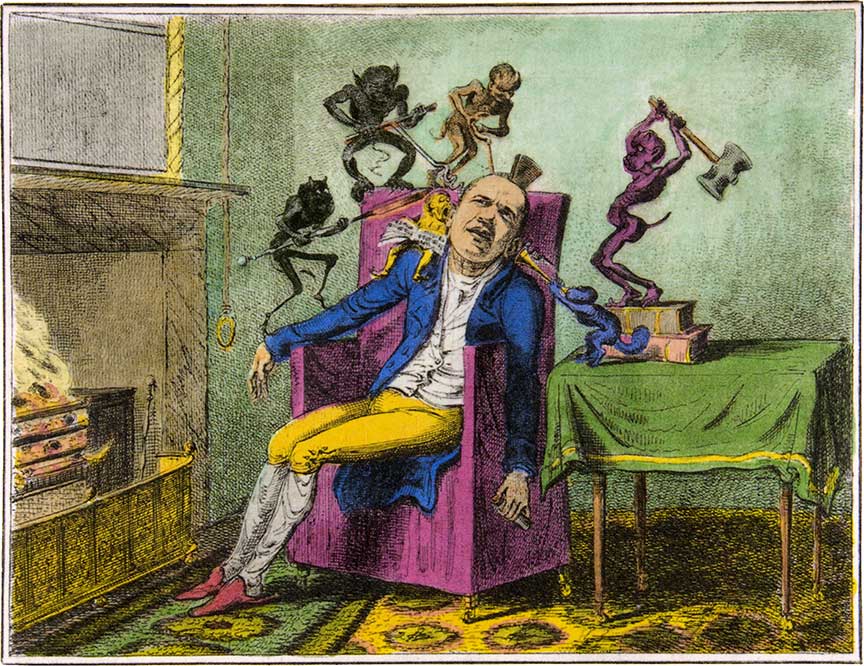I fear that the president declared a premature victory for the Affordable Care Act when he said that its initial goals were met, it was time to move on to other matters, and the idea of repealing it is no longer feasible. He made the mistake of thinking that facts matter when a cult is involved. Obamacare is now, for many, haloed with hate, to be fought against with all one’s life. Retaining certitude about its essential evil is a matter of self-respect, honor for one’s allies in the cause, and loathing for one’s opponents. It is a religious commitment.
I am reminded of an exchange that took place between the historian Francis Russell and John Dos Passos. In 1920, two Italian anarchists—Nicola Sacco and Bartolomeo Vanzetti—were accused of killing a security guard and an employee of a shoe factory during a payroll robbery to finance their political subversions. Their trial, which resulted in murder convictions for both, was manifestly unfair, and it caused an eruption of sympathy and protest on the left.
Celebrities around the world rushed to the two men’s defense. One of the leaders in this movement, who wrote extensively about the case, was the novelist Dos Passos. Nonetheless, the two men were executed in 1927.
But in the 1960s Francis Russell produced new ballistics tests and interviews to prove that one man, Sacco, had killed the two men at the shoe factory; the other, Vanzetti, was innocent. He tried to show this evidence to Dos Passos, who had given up his leftist ideas by that time. Dos Passos told Russell he could not even hear evidence that would unsettle his personal stake in the matter. He had invested too much of his youthful energy and self-esteem in the case to reopen it even for the slightest reconsideration. It would destroy his very identity, which had been tied up in that passionate commitment.
That is the way people cling with ardor to causes they have felt honor-bound to maintain. In the mid-term elections this fall, evidence will matter little to the opponents of Obamacare. Like Dos Passos, they will refuse to consider anything that goes against their devotion. Such people understandably think their own best self was given over to defeating the hated thing. It is not only a matter of self-respect but of commitment to others. Dos Passos had crusaded with some of his most treasured friends for Sacco and Vanzetti. Some truly despicable people had been on the other side, tainting it forever in his mind. The case was, moreover, symbolic of other commitments—to the right to a fair trial, to immigrant rights, to free speech—which he could not dislodge by removing one brick from the structure.
That kind of commitment looks all the nobler to those preserving it as they resist attacks. I presume that Obamacare will become just successful enough to endure after adjustments and repair; but that will not make it any less hated by the people who have spent years encouraging each other to inveigh against it in extreme exercises of vilification (death panels, socialism, destruction of the Constitution, etc.). We have to remember that Social Security remained hated long after its success made it undislodgeable. As a symbol of the New Deal, Republicans have tried to defeat it down through the decades. Paul Ryan is still at it. George W. Bush tried to use his re-election mandate to privatize it. Once such a cause is made sacred by sacrificing for it, it will remain a cult object forever.
The irrelevance of evidence in the face of sacred causes explains the dogged denial of global warming, the deep belief that the Obama Administration was responsible for the killing of Ambassador J. Christopher Stevens in Benghazi and that Obama is not a legitimate American. To go back farther, it explains the claims that FDR arranged for the attack on Pearl Harbor and gave much of the world away to Stalin at Yalta (an idea Joe Scarborough is still clinging to). Repealing Obamacare will eventually go the way of repealing the New Deal. But the opposition will never fade entirely away—and it may well be strong enough in this year’s elections to determine the outcome. It is something people are willing to sacrifice for and feel noble about. Creeds are not built up out of facts. They are what make people reject all evidence that guns are more the cause of crime than the cure for it. The best preservative for unreason is to make a religion of it.



